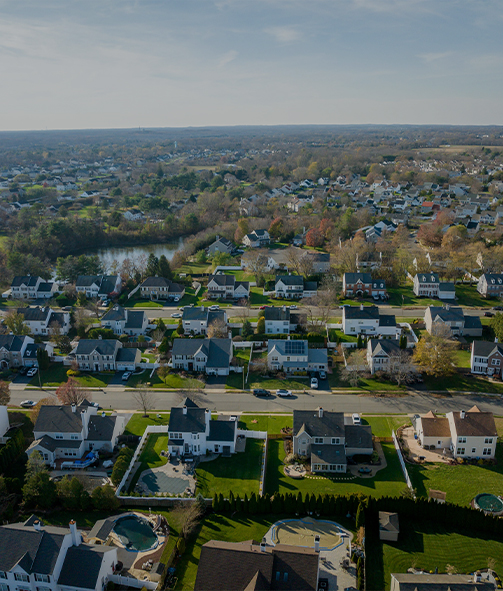Who’s Liable if an Amazon, UPS, or FedEx Driver Causes a Crash in New Jersey?
Delivery vans are everywhere in Monmouth County and across New Jersey. Amazon, UPS, and FedEx trucks keep neighborhoods stocked with packages, but their constant presence on the road also means more chances for accidents. If you were hit by a delivery vehicle, you may wonder who’s responsible — the driver, the company, or both? The answer depends on how the driver is classified, insurance coverage, and the legal concept of vicarious liability.
Who Is Liable When a Delivery Driver Causes a Crash?
In most car accidents, the at-fault driver is held responsible. With commercial delivery vehicles, liability can extend beyond the individual behind the wheel. Courts examine whether the driver was working within the scope of their job at the time of the crash and whether the company should share responsibility.
This is where things get complicated with Amazon, UPS, and FedEx. Some drivers are direct employees, while others are contractors. That distinction can determine whether a major company is liable for damages.
Are Delivery Drivers Employees or Independent Contractors?
One of the first questions in these cases is whether the driver was an employee or an independent contractor:
- UPS and FedEx Express drivers are usually employees. If they cause a crash while working, the company itself can often be held liable for the incident.
- FedEx Ground drivers are frequently independent contractors who own or lease their trucks. Liability may rest with the individual or their subcontracting business.
- Amazon drivers may be either Amazon employees or part of the Amazon Flex program. Flex drivers are treated as independent contractors, meaning Amazon may argue it is not directly responsible for their accidents.
New Jersey courts don’t simply accept the company’s label. They look at the level of control the business has over the driver. If the company sets routes, monitors performance, and dictates schedules, it may still be held accountable even when it calls someone a contractor.
How Does Vicarious Liability Work?
Vicarious liability is a legal principle that holds employers responsible for the negligence of their workers when it occurs on the job. This can be a lifeline for crash victims, since a large company has far greater resources than an individual driver.
For example:
- If a UPS driver rear-ends someone while delivering packages, UPS may be liable under the doctrine of vicarious liability.
- If the same driver leaves work and causes a crash while running personal errands, the company is likely not responsible.
The key question is whether the driver was acting within the scope of employment at the time of the accident.
What Insurance Covers Delivery Driver Accidents?
Commercial delivery companies generally carry large insurance policies to cover accidents caused by their employees. These policies can provide significant coverage for medical bills, lost wages, and other damages.
Independent contractors, however, may rely on their own auto insurance. Problems arise because personal auto policies often exclude accidents that happen while driving for work. Amazon Flex, for example, requires drivers to carry certain coverage, but victims may face disputes over policy limits and exclusions.
This is why delivery accident claims can quickly escalate into disputes with multiple insurers, each attempting to shift blame or minimize payouts.
What Causes Delivery Driver Accidents in Monmouth County?
Delivery drivers face intense schedules and unique road challenges. Common accident causes include:
- Fatigue from long shifts
- Distracted driving from GPS devices, scanners, or phones
- Speeding to meet tight deadlines
- Unsafe parking or sudden stops in busy neighborhoods
- Poor vehicle maintenance, especially on contractor-owned trucks
These factors indicate that crashes often result not just from individual mistakes, but from systemic pressures within the delivery industry.
Why Is Preserving Evidence So Important?
Evidence is critical in delivery truck accident cases. Helpful records may include:
- GPS and route data
- Delivery schedules and driver logs
- Vehicle inspection and maintenance records
- Dashcam or surveillance footage
- Witness statements
Large companies may not retain these records for long, and contractors may not produce them without facing legal repercussions. Acting quickly after a crash helps ensure valuable evidence is preserved before it disappears.
Protecting Your Rights After a Delivery Vehicle Crash
When an Amazon, UPS, or FedEx driver causes an accident, figuring out who’s liable is rarely simple. Employment status, vicarious liability rules, and insurance coverage all play a role. Add in the need to secure evidence quickly, and these cases become more complex than a typical car accident claim.
At Noonan & McMahon, we know how to stand up to big delivery companies and their insurers. If you’ve been injured in a delivery driver crash in Monmouth County, call for a free consultation. We’ll review your case and fight for the compensation you deserve.
